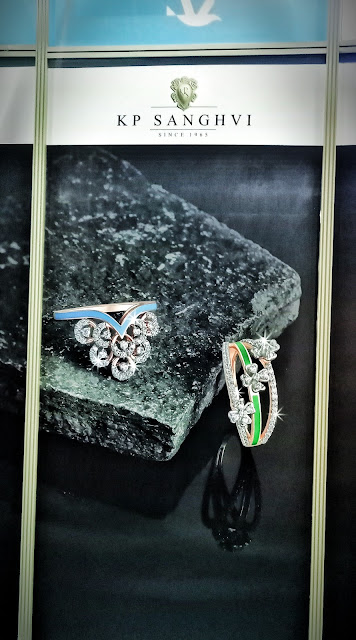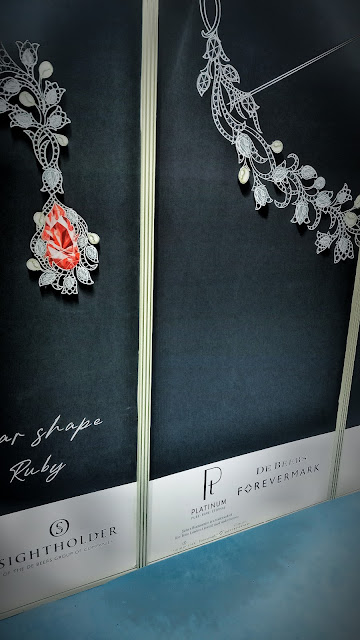Exploring IIJS 2024 | Swapnil Saundarya
Exploring the extraordinary pieces of art........
Let's talk about Sustainable Indian Jewellery Industry|
Creating a sustainable Indian jewelry industry requires a collective effort from all stakeholders involved, including manufacturers, suppliers, consumers, and governmental bodies. Here are some strategies to ensure sustainability and strengthen the industry's contribution to sustainable development goals:
1. Ethical sourcing: Encourage responsible sourcing practices by ensuring that precious metals and gemstones are obtained ethically and without causing harm to the environment, communities, or workers. Implement stringent certification processes to verify the origin and authenticity of raw materials.
2. Fair trade practices: Promote fair trade principles within the industry. Support manufacturers and suppliers who provide fair wages and safe working conditions for their employees. Encourage transparency in the supply chain to ensure that artisans receive fair compensation for their work.
3. Waste reduction and recycling: Encourage jewelry manufacturers to adopt sustainable production techniques that minimize waste and utilize recycled materials. Promote the use of sustainable packaging materials to reduce the industry's carbon footprint.
4. Water and energy conservation: Encourage jewelry manufacturers to adopt eco-friendly practices that reduce water and energy consumption. Implement technologies that minimize the environmental impact during the production process. Emphasize the use of renewable energy sources to power manufacturing units.
5. Education and awareness: Create awareness among consumers about the importance of sustainable jewelry choices. Educate them about the environmental and social impacts of their purchasing decisions. Promote the use of eco-friendly materials and encourage consumers to prefer brands that adhere to sustainable practices.
6. Collaboration and partnerships: Foster collaborations between jewelry manufacturers, designers, and governmental bodies to develop policies and guidelines that promote sustainability in the industry. Engage in partnerships with environmental organizations and industry associations to develop sustainable practices and share best practices.
7. Supporting communities: Encourage jewelry companies to invest in local communities by supporting education, healthcare, and skill development initiatives. Implement programs that empower artisans and provide them with fair job opportunities.
8. Industry regulations and standards: Work with governmental bodies to establish industry regulations and standards that ensure the ethical and sustainable production of jewelry. Regular audits and certifications can help enforce these regulations.
9. Responsible marketing: Encourage jewelry companies to engage in responsible marketing practices that do not promote wasteful or extravagant consumption. Highlight the craftsmanship and cultural significance of jewelry rather than focusing solely on material value.
By adopting these strategies, the Indian jewelry industry can contribute to sustainable development goals by reducing its environmental footprint, promoting fair trade practices, supporting local communities, and raising awareness among consumers. This will help build a more responsible and sustainable future for the industry.
Swapnil Shukla is an Indian Artist, Designer, Journalist, Columnist & Sustainability Activist. She writes on Fashion, Politics, Therapeutic Art, Entrepreneurship & Sustainable living. She owns ‘Swapnil Saundarya Label'. Bagged several awards in the field of arts and for promoting Livelihoods & Self-reliance.
copyright©2O12-Present. Swapnil Shukla. All rights reserved
No part of this publication may be reproduced , stored in a retrieval system or transmitted , in any form or by any means, electronic, mechanical, photocopying, recording or otherwise, without the prior permission of the copyright owner.
Copyright infringement is never intended, if we published some of your work, and you feel we didn't credited properly, or you want us to remove it, please let us know and we'll do it immediately.
No part of this publication may be reproduced , stored in a retrieval system or transmitted , in any form or by any means, electronic, mechanical, photocopying, recording or otherwise, without the prior permission of the copyright owner.
Copyright infringement is never intended, if we published some of your work, and you feel we didn't credited properly, or you want us to remove it, please let us know and we'll do it immediately.
























Comments
Post a Comment